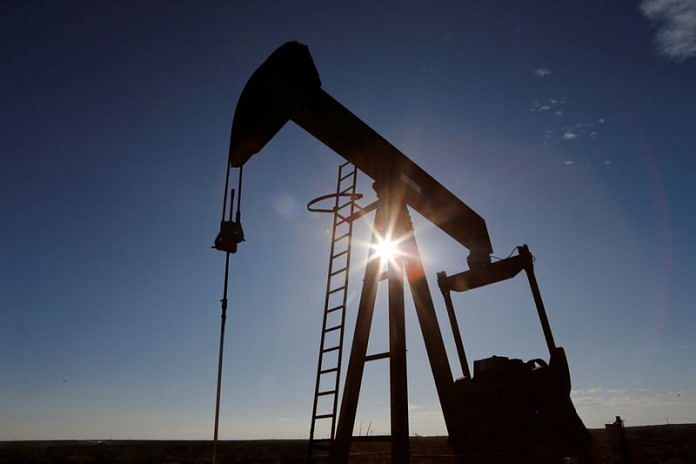By Nicole Jao
NEW YORK (Reuters) – Oil prices fell on Tuesday after Ukraine’s President Volodymyr Zelenskiy agreed to a truce with Russia covering the Black Sea and energy infrastructure, though crude prices drew support from the prospect of tighter global supply due to threatened U.S. tariffs on countries buying Venezuelan production.
Brent crude futures were down 9 cents, or 0.12%, at $72.91 a barrel by 2:12 p.m. ET (1812 GMT). U.S. West Texas Intermediate crude fell 23 cents, or 0.33%, to $68.88.
Zelenskiy said the truce was effective immediately on Tuesday but added he would seek more weapons from U.S. President Donald Trump and sanctions against Russia if Moscow broke the deals.
“If there’s a ceasefire between Russia and Ukraine, it might open the door for the reduction of sanctions on Russian oil,” said Phil Flynn, senior analyst with Price Futures Group.
The U.S. reached separate agreements on Tuesday with Ukraine and Russia to ensure safe navigation in the Black Sea and to implement a ban on attacks by the two countries on each other’s energy facilities, Reuters reported.
Trump’s threat of tariffs against countries importing oil and gas from Venezuela has raised supply concerns, and both benchmarks rose more than 1% on Monday following the announcement.
“These secondary tariffs are an indirect sanction to degrade Venezuela’s oil supply capability and hurt China’s teapot refining system,” said Mukesh Sahdev, Rystad Energy’s global head of commodity markets.
Oil is Venezuela’s main export. China, already a target of U.S. import tariffs, is its largest buyer.
The Trump administration also on Monday extended a deadline to May 27 for U.S. producer Chevron to wind down operations in Venezuela.
The withdrawal of Chevron’s licence to operate could reduce production in the country by about 200,000 barrels per day, according to ANZ analysts.
OPEC+, the Organization of the Petroleum Exporting Countries and allies including Russia, will likely stick to its plan to raise oil output for a second consecutive month in May, four sources told Reuters, amid steady oil prices and plans to force some members to reduce pumping to compensate for past overproduction.
Last week, the U.S. issued new sanctions intended to hit Iranian oil exports.
Trump also said automobile tariffs are coming soon even as he indicated that not all his threatened levies would be imposed on April 2 and some countries may get breaks, a move Wall Street took as a sign of flexibility on a matter that has roiled markets for weeks.
(Additional reporting by Ahmad Ghaddar in London, Yuka Obayashi in Tokyo and Siyi Liu in Singapore; Editing by Louise Heavens, Kirsten Donovan, Joe Bavier and David Gregorio)
Disclaimer: This report is auto generated from the Reuters news service. ThePrint holds no responsibility for its content.




